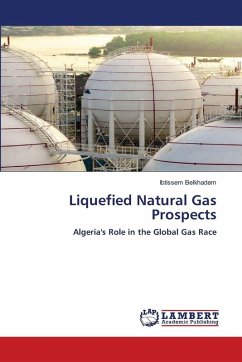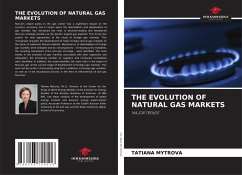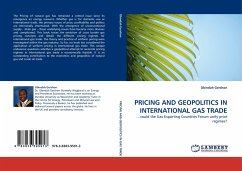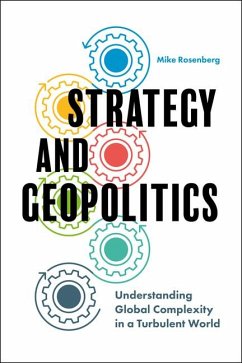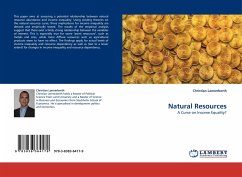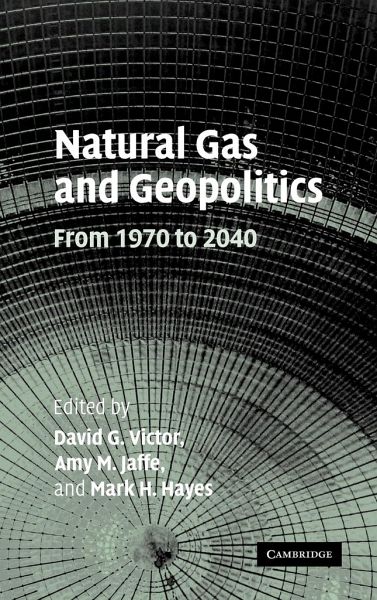
Natural Gas and Geopolitics
From 1970 to 2040
Herausgeber: Victor, David G.; Hayes, Mark H.; Jaffe, Amy M.

PAYBACK Punkte
78 °P sammeln!
Expert analysis of the political challenges which may accompany a shift to a gas-fed world.By most estimates, global consumption of natural gas - a cleaner-burning alternative to coal and oil - will double by 2030. However, in North America, Europe, China, and South and East Asia, which are the areas of highest-expected demand, the projected consumption of gas is expected to far outstrip indigenous supplies. Delivering gas from the world's major reserves to the future demand centres will require a major expansion of inter-regional, cross-border gas transport infrastructures. This book investig...
Expert analysis of the political challenges which may accompany a shift to a gas-fed world.
By most estimates, global consumption of natural gas - a cleaner-burning alternative to coal and oil - will double by 2030. However, in North America, Europe, China, and South and East Asia, which are the areas of highest-expected demand, the projected consumption of gas is expected to far outstrip indigenous supplies. Delivering gas from the world's major reserves to the future demand centres will require a major expansion of inter-regional, cross-border gas transport infrastructures. This book investigates the implications of this shift, utilizing historical case studies as well as advanced economic modeling to examine the interplay between economic and political factors in the development of natural gas resources. The contributors aim to shed light on the political challenges which may accompany a shift to a gas-fed world.
Review quote:
'Energy is on the front burner and will stay there, so this book has special value. Read it and learn about the topic of today and tomorrow and tomorrow.' George P. Shultz, United States Secretary of State, 1982-1989
'The coming phase of energy industry development is bringing with it the rapid globalisation of the gas business. Long term take-or-pay contracts, which align supply and demand and which formed the foundation of all successful projects in the past, are coming under pressure from liberalisation. But security of supply still depends on security of demand: this timely and authoritative study demonstrates that, if gas is to fulfil its enormous promise as an energy source, new ways must be found to establish the confidence of both sides that secure supply will be matched by reliable demand.' Frank Chapman, CEO, BG Group plc
This is a very valuable addition to the global literature on energy issues and energy policy - Natural Gas and Geopolitics goes deep into the global gas policy issues that affect critical US energy policy, not only looking backward but helping understand what may happen as the global natural gas market develops.' Bill Richardson, Governor of New Mexico, United States Secretary of Energy, 1998-2001
'This fascinating book tells a compelling story about the long term future of the gas industry ...it is able to develop quite complex arguments, and provide evidence to support its conclusions. There is much to digest in this book...' Gas Matters
Table of contents:
Figures; Tables; Appendices; Acronyms; Preface; List of contributors; Acknowledgements; Part I. Introduction and Context: 1. Introduction to the study Joe Barnes, Mark H. Hayes, Amy M. Jaffe, and David G. Victor; Part II. Historical Case Studies: 2. Introduction to the historical case studies: research questions, methods and case selection Mark H. Hayes and David G. Victor; 3. The Transmed and Maghreb projects: gas to Europe from North Africa Mark H. Hayes; 4. Liquefied natural gas from Indonesia: the Arun project Fred von der Mehden and Steven W. Lewis; 5. Bypassing Ukraine: exporting Russian gas to Poland and Germany David G. Victor and Nadejda M. Victor; 6. Natural gas pipelines in the Southern Cone David R. Mares; 7. International gas trade in Central Asia: Turkmenistan, Iran, Russia and Afghanistan Martha Brill Olcott; 8. Liquefied natural gas from Qatar: the Qatargas project Jareer Elass, Kohei Hashimoto, Stacy L. Eller; 9. Liquefied natural gas from Trinidad: the Atlantic LNG project Rob Shepherd and James Ball; 10. Politics, markets and the shift to gas: insights from the seven historical case studies Mark H. Hayes and David G. Victor; Part III. International Gas Trade Economics: 11. The Baker Institute world gas trade model Peter Hartley and Kenneth B. Medlock III; 12. Political and economic influences on the future world market for natural gas Peter Hartley and Kenneth B. Medlock III; 13. Market structure in the new gas economy: is cartelization possible? Amy M. Jaffe and Ronald Soligo; Part IV. Implications: 14. Conclusions Amy M. Jaffe, Mark H. Hayes and David G. Victor; Appendix A. Technical notes Nadejda M. Victor.
By most estimates, global consumption of natural gas - a cleaner-burning alternative to coal and oil - will double by 2030. However, in North America, Europe, China, and South and East Asia, which are the areas of highest-expected demand, the projected consumption of gas is expected to far outstrip indigenous supplies. Delivering gas from the world's major reserves to the future demand centres will require a major expansion of inter-regional, cross-border gas transport infrastructures. This book investigates the implications of this shift, utilizing historical case studies as well as advanced economic modeling to examine the interplay between economic and political factors in the development of natural gas resources. The contributors aim to shed light on the political challenges which may accompany a shift to a gas-fed world.
Review quote:
'Energy is on the front burner and will stay there, so this book has special value. Read it and learn about the topic of today and tomorrow and tomorrow.' George P. Shultz, United States Secretary of State, 1982-1989
'The coming phase of energy industry development is bringing with it the rapid globalisation of the gas business. Long term take-or-pay contracts, which align supply and demand and which formed the foundation of all successful projects in the past, are coming under pressure from liberalisation. But security of supply still depends on security of demand: this timely and authoritative study demonstrates that, if gas is to fulfil its enormous promise as an energy source, new ways must be found to establish the confidence of both sides that secure supply will be matched by reliable demand.' Frank Chapman, CEO, BG Group plc
This is a very valuable addition to the global literature on energy issues and energy policy - Natural Gas and Geopolitics goes deep into the global gas policy issues that affect critical US energy policy, not only looking backward but helping understand what may happen as the global natural gas market develops.' Bill Richardson, Governor of New Mexico, United States Secretary of Energy, 1998-2001
'This fascinating book tells a compelling story about the long term future of the gas industry ...it is able to develop quite complex arguments, and provide evidence to support its conclusions. There is much to digest in this book...' Gas Matters
Table of contents:
Figures; Tables; Appendices; Acronyms; Preface; List of contributors; Acknowledgements; Part I. Introduction and Context: 1. Introduction to the study Joe Barnes, Mark H. Hayes, Amy M. Jaffe, and David G. Victor; Part II. Historical Case Studies: 2. Introduction to the historical case studies: research questions, methods and case selection Mark H. Hayes and David G. Victor; 3. The Transmed and Maghreb projects: gas to Europe from North Africa Mark H. Hayes; 4. Liquefied natural gas from Indonesia: the Arun project Fred von der Mehden and Steven W. Lewis; 5. Bypassing Ukraine: exporting Russian gas to Poland and Germany David G. Victor and Nadejda M. Victor; 6. Natural gas pipelines in the Southern Cone David R. Mares; 7. International gas trade in Central Asia: Turkmenistan, Iran, Russia and Afghanistan Martha Brill Olcott; 8. Liquefied natural gas from Qatar: the Qatargas project Jareer Elass, Kohei Hashimoto, Stacy L. Eller; 9. Liquefied natural gas from Trinidad: the Atlantic LNG project Rob Shepherd and James Ball; 10. Politics, markets and the shift to gas: insights from the seven historical case studies Mark H. Hayes and David G. Victor; Part III. International Gas Trade Economics: 11. The Baker Institute world gas trade model Peter Hartley and Kenneth B. Medlock III; 12. Political and economic influences on the future world market for natural gas Peter Hartley and Kenneth B. Medlock III; 13. Market structure in the new gas economy: is cartelization possible? Amy M. Jaffe and Ronald Soligo; Part IV. Implications: 14. Conclusions Amy M. Jaffe, Mark H. Hayes and David G. Victor; Appendix A. Technical notes Nadejda M. Victor.





